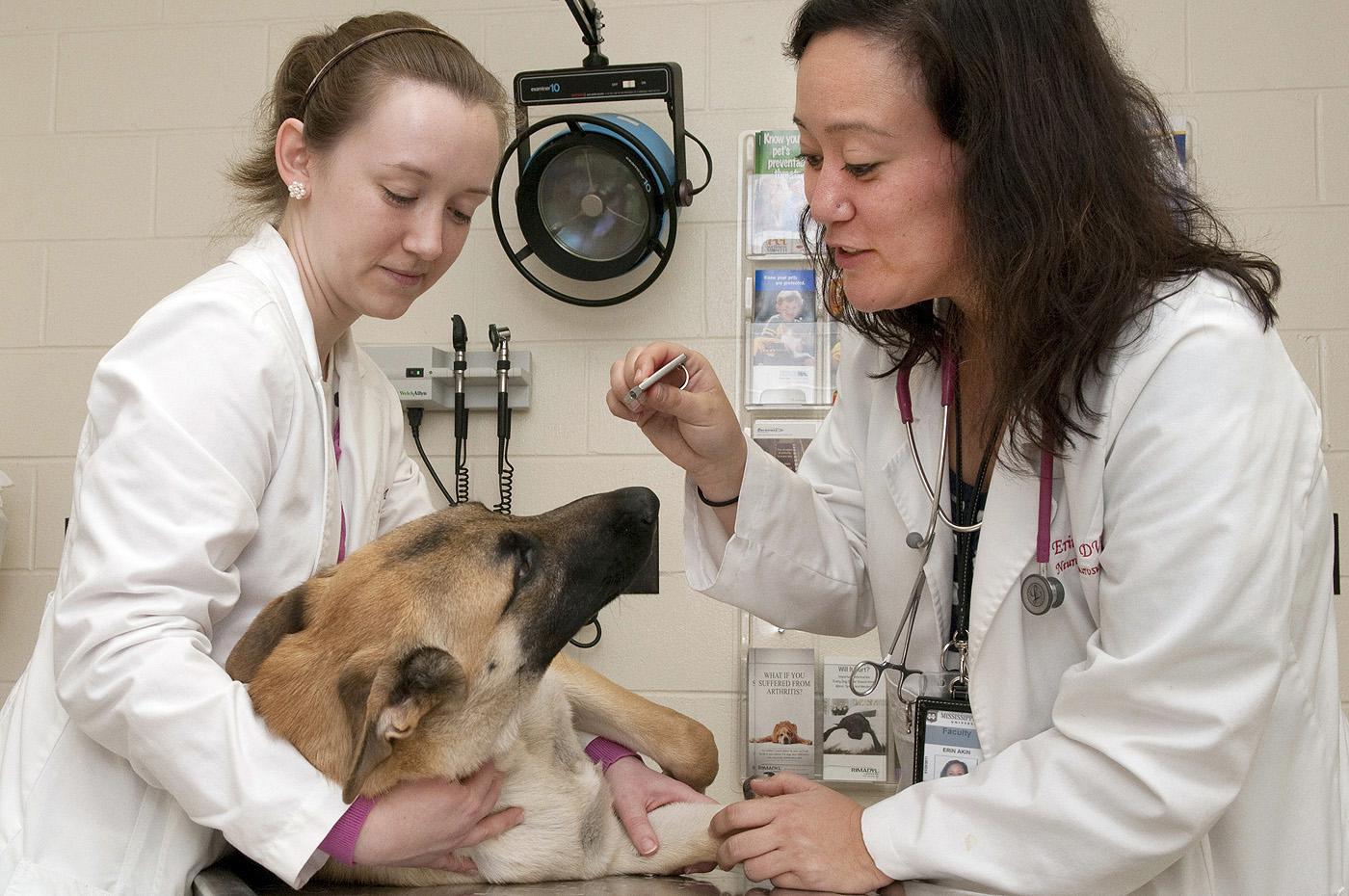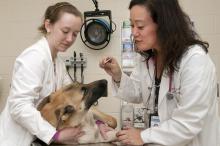Information Possibly Outdated
The information presented on this page was originally released on March 3, 2011. It may not be outdated, but please search our site for more current information. If you plan to quote or reference this information in a publication, please check with the Extension specialist or author before proceeding.
Veterinary neurology efforts expand at MSU
MISSISSIPPI STATE -- Pet owners in Mississippi and surrounding states can turn to Mississippi State University’s College of Veterinary Medicine when their four-legged loved ones develop neurological problems.
Medical and surgical conditions that involve the brain or nervous system can be a challenge to diagnose and treat, especially when they affect patients who cannot talk. Veterinarians needing consultations on particularly difficult cases frequently turn to MSU’s veterinary college, which now has access to the best diagnostic equipment available in human medicine.
Dr. Andy Shores joined MSU’s College of Veterinary Medicine as a clinical professor of neurosurgery and neurology and is leading the efforts to establish a partnership with a human imaging facility. The board-certified neurologist has brought three members of his neurology team from Auburn to the unique opportunity at MSU.
“We saw a chance to start something new and special here by partnering with Premier Imaging in Starkville,” Shores said.
One side of the Stark Road facility will see human patients, and the other side will see animal clients beginning around April 1. Diagnostic imaging equipment will be used for humans and animals. MSU veterinarians will conduct clinic hours for diagnoses at Premier, but any surgery will take place on campus at MSU’s Animal Health Center.
“Students will complete rotations at the clinic and observe neurosurgical procedures, such as intracranial and spinal procedures, at the college,” Shores said. “The expansion in neurological services will provide pet owners better access to medical treatment for their animals, help future veterinarians gain experience and offer practicing veterinarians second opinions on their more difficult cases.”
Joining Shores at MSU are Dr. Erin Akin, a clinical instructor in neurology/neurosurgery; and Drs. Michaela Beasley and Nora Ortinau, both residents in neurology/neurosurgery.
“Our caseload is already growing, and we are receiving referrals from as far away as New Orleans, Baton Rouge, Memphis and Birmingham,” Shores said. “MSU is centrally located between other veterinary colleges with neurology programs.”
Betty Johnson of Birmingham recently brought her part-Labrador, Cody, for a neurological examination at MSU. The 7-year-old shelter dog loved playing ball and catching flying disks, but a bulging disk in his neck threatened to sideline him from his favorite activities. Cody’s local veterinarian referred him to MSU for a possible neck surgery.
“I really appreciated the level of communication we received. They called me regularly, even before the surgery, to let me know how Cody was doing. I could tell they enjoyed his loving personality, and that made me feel better,” she said. “A few weeks after the surgery, he was off pain medications and back to normal.”
Dr. Ron McLaughlin, head of the CVM’s clinical sciences department, said access to the MRI and CT machines at Premier Imaging will be key to accurate diagnoses and treatments.
“Whether the cases are managed with medication, require surgery or some other option, pet owners need all the information a veterinarian can provide before deciding a course of action,” he said. “That is what we want to provide.”



